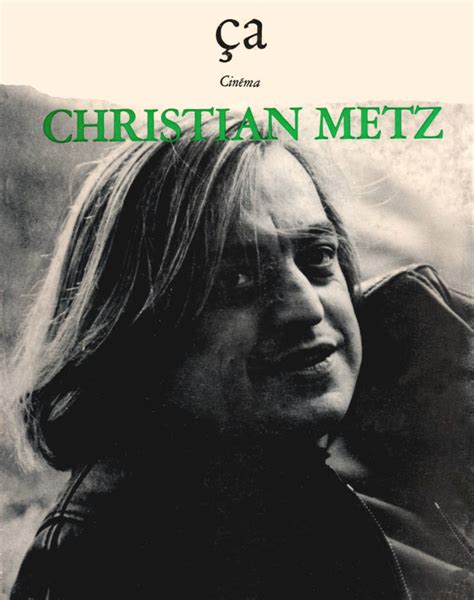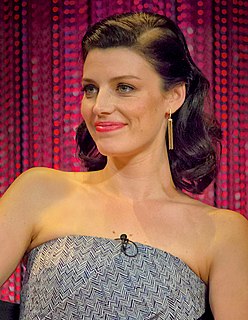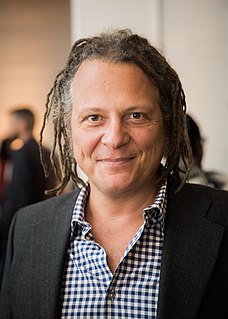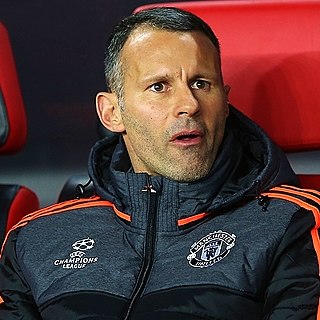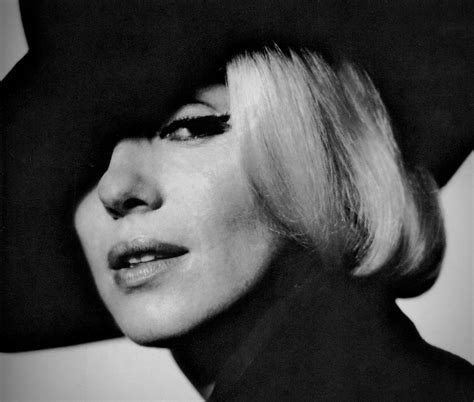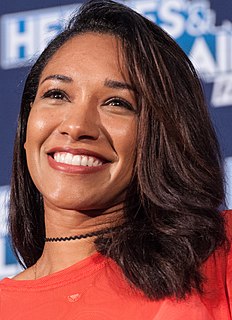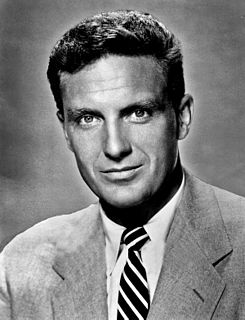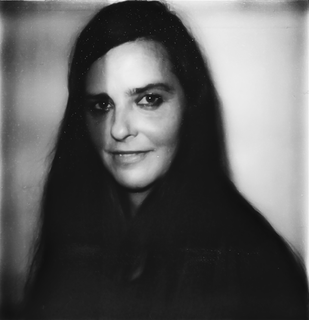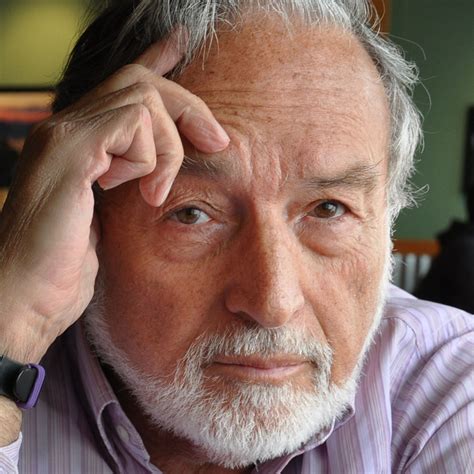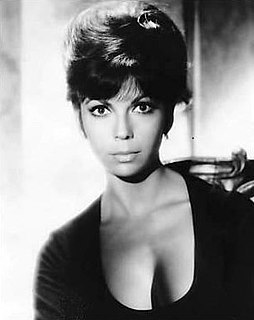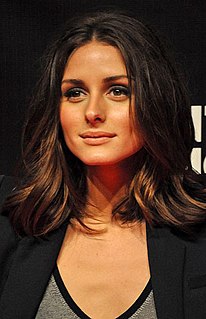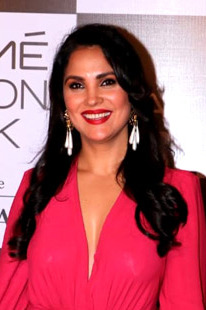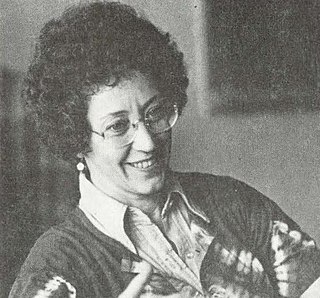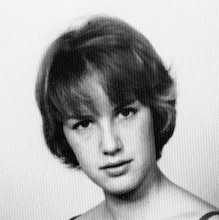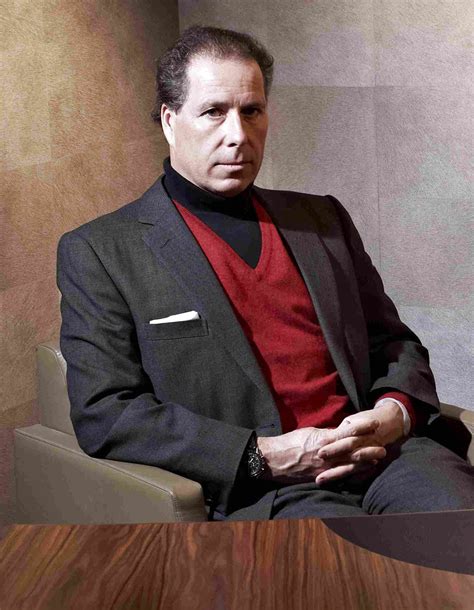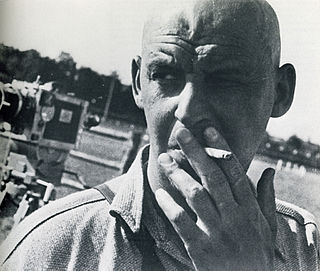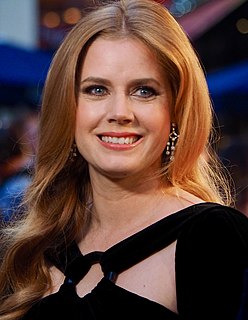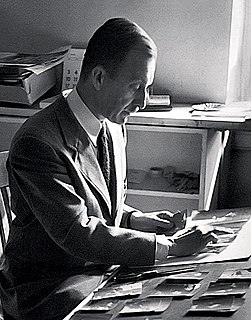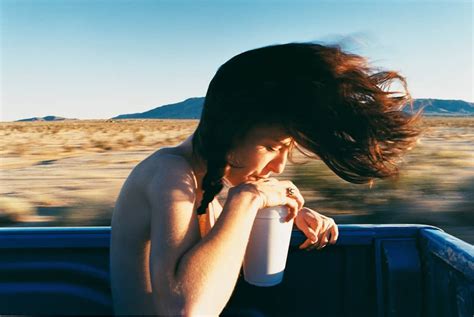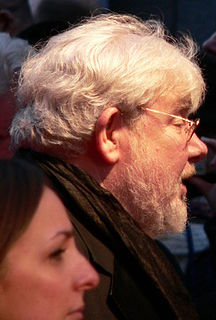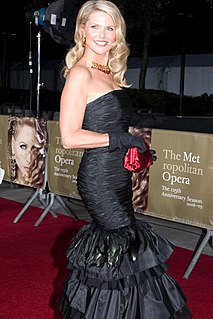Top 341 Photographed Quotes & Sayings - Page 5
Explore popular Photographed quotes.
Last updated on April 20, 2025.
What is the subject matter of this apparently very personal world? It has been suggested that these shapes and images are underworld characters, the inhabitants of the vast common realm of memories that have gone down below the level of conscious control. It may be they are. The degree of emotional involvement and the amount of free association with the material being photographed would point in that direction.
Old ladies photographed by CBS who announced that they would die of malnutrition if Reagan's bill were passed could probably have saved themselves their impending penury by the simple device of applying to the American Federation of Television and Radio Artists for scale every time they were featured by Dan Rather or whoever.
To suffer is one thing; another thing is living with the photographed images of suffering, which does not necessarily strengthen conscience and the ability to be compassionate. It can also corrupt them. Once one has seen such images, one has started down the road of seeing more - and more. Images transfix. Images anesthetize.
I think I've always been ambitious. It just looks different on me. You know, I have friends who are actresses who go to every party they possibly can to be photographed and really try to make every connection they can, and I admire that and sometimes I wish I had a little bit more of that. Sometimes I feel like I don't have enough ambition.
Like most portrait photographers, I aim to record the instant the subject is not thinking about being photographed, striving to get beyond the practiced facial performance, reaching for something unplanned. While trying to be as objective as possible, I acknowledge that every gesture is still an act of artifice.
A saboteur in the house of art and a comedienne in the house of art theory, Lawler has spent three decades documenting the secret life of art. Functioning as a kind of one-woman CSI unit, she has photographed pictures and objects in collectors' homes, in galleries, on the walls of auction houses, and off the walls, in museum storage.
Photographs bear witness to a human choice being exercised in a given situation. A photograph is a result of the photographer's decision that it is worth recording that this particular event or this particular object has been seen. If everything that existed were continually being photographed, every photograph would become meaningless.
It's important to understand it's OK to control the subject. If most editorial stories were photographed just as they are, editors would end up throwing most in the waste basket. You have to work hard at making an editorial picture. You need to re-stage things, rearrange things so that they work for the story, with truth and without lying.
I think where I've instinctively found myself is that I am somewhat guarded in my public life. Being interviewed or being photographed or just in public attention, I have a certain reserve. But when I'm working I feel like I'm very open. At least I like to believe that I feel like nothing is held back when I'm in front of a camera. That's my job.
The stoic drama 'A Somewhat Gentle Man' is photographed in a palate of steel gray tones that match Stellan Skarsgard's complexion. It's a low-blood-pressure version of the kind of thing James M. Cain used to do in his sleep, and its filmmaking accomplishment is as minimalist as its narrative ambition is minimal.
If you photograph for a long time, you get to understand such things as body language. I often do not look at people I photograph, especially afterwards. Also when I want a photo, I become somewhat fearless, and this helps a lot. There will always be someone who objects to being photographed, and when this happens you move on.
For me it is essential to understand that everyone is alone. Not in the sense of loneliness, but rather in the sense that no one can completely understand someone else. I know very well what Diane Arbus means when she says that one cannot crawl into someone else's skin, but there is always an urge to do so anyway. I want to awaken definite sympathies for the person I have photographed.
So many times I've photographed stories that show the degradation of the planet. I had one idea to go and photograph the factories that were polluting, and to see all the deposits of garbage. But, in the end, I thought the only way to give us an incentive, to bring hope, is to show the pictures of the pristine planet - to see the innocence.
In 1850, August Salzmann photographed, near Jerusalem, the road to Beith-Lehem (as it was spelled at the time): nothing but stony ground, olive trees; but three tenses dizzy my consciousness: my present, the time of Jesus, and that of the photographer, all this under the instance of 'reality' - and no longer through the elaborations of the text, whether fictional or poetic, which itself is never credible down to the root.
After I have photographed the way I like to, I feel as I might if I had been making love all day, marvelous and exhausted and wanting to collapse on the floor in a heap. That's why I can't photograph just anybody, and why it's so hard to photograph people on assignment; it's like going to bed with someone not of my choosing.
Ever since I began working with toys, I have been intrigued with the idea that these seemingly benign objects could take on such incredible power and personality simply by the way they were photographed. I began to realize that by carefully selecting the depth of field and making it narrow, I could create a sense of movement and reality that was in fact not there
I hadn't performed or been in the public eye for about 16 years. When my husband passed away, I was obliged to go back to work to take care of our kids. I also wanted to do a record in memory of him. So we did Gone Again. During that process, I had to be photographed and had to go back to doing articles and interviews.
Marseilles isn't a city for tourists. There's nothing to see. Its beauty can't be photographed. It can only be shared. It's a place where you have to take sides, be passionately for or against. Only then can you see what there is to see. And you realize, too late, that you're in the middle of a tragedy. An ancient tragedy in which the hero is death. In Marseilles, even to lose you have to know how to fight.
My father's rooms, as a child, were a very exciting place to be. Not only because of the beautiful models who were coming to be photographed for Vogue or The Sunday Times but also because of the very avant-garde furniture that he had made. He made designs for the investiture of the Prince of Wales in 1969 at Caernarfon Castle.
The portrait of a person is one of the most difficult things to do. It means you must almost bring the presence of that person photographed to other people in such a way that they don't have to know that person personally, but that they are still confronted with a human being that they won't forget. That's a portrait.
I've done an incredible amount of painters. It's an area, for me, where there's more mystery left. I've photographed so many musicians, I've been in studios so often, I know the whole process. The mystery's gone from it. I think it's important to keep mystery into our lives. There's a longing connected with it.
When I had photographed Prince William's mother, I brought along a CD of Dalida, a French singer, that we played on set all day to relax everyone. I decided to do the same thing for Catherine and William. The contrast of the contemporary informal music playing in the beautiful rooms with so much history caused a lot of laughter.
Some of these actresses or public personas who are very public about their disciplined diets, more power to them. I just don't see the point. I'm just not going to be one of those people photographed in a bikini where people are like, 'OMG, look at Amy!' I mean, it might be OMG, but not for the reasons I want.
Surprise quality can be achieved in many ways. It may be produced by a certain stimulating geometrical relationship between elements in the picture or through the human interest of the situation photographed or by calling our attention to some commonplace but fascinating thing we have never noticed before or it can be achieved by looking at an everyday thing in a new interesting way.
I got a lot of attention when I was really young, and people have it in their minds that I'm still 24 years old. So I made the decision that I had photographed everything I was interested in in New York. New York is a town you have to embrace, but you also need to leave. I may revisit it one day, but for me it's a place to live rather than one to make work in.
The redwoods, once seen, leave a mark or create a vision that stays with you always. No one has ever successfully painted or photographed a redwood tree. The feeling they produce is not transferable. From them comes silence and awe. It's not only their unbelievable stature, nor the color which seems to shift and vary under your eyes, no, they are not like any trees we know, they are ambassadors from another time.






